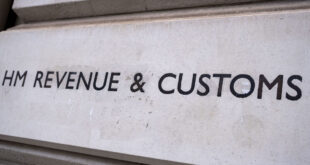
Pensioners are being urged to rejig their finances to dodge a new income rule that could strip them of the winter fuel payment.
New rules introduced by Chancellor Rachel Reeves mean that those with an income of more than £35,000 a year will have to pay back the payment – worth up to £300 – through the tax system.
But experts have revealed a series of simple tweaks that could ensure many retirees stay just under the cut-off and keep the cold-weather cash.
Alice Haine, of wealth manager Bestinvest, warned: “This is effectively another tax cliff-edge.
“Paying attention to what constitutes as income may become very important for those whose incomes hover around the £35,000 mark, as a minor adjustment could be the difference between receiving the payment or handing it back through tax.”
The threshold includes income from the state pension, private pensions, dividends and savings interest.
Backtrack after backlash
The latest move comes after Labour was forced into a hasty U-turn on scrapping winter fuel payments entirely for millions of pensioners. Following public outcry, Ms Reeves reinstated the benefit – but added a means-test threshold of £35,000 in income.
She insisted “no pensioner on a lower income will miss out”, but the new system means thousands could still lose the payment unless they carefully manage their income.
If both partners in a household earn more than £35,000 each, they will have to repay the full payment. If only one crosses the line, half the money must be returned.
Roughly nine million older people – about three-quarters of pensioners – are expected to remain eligible.
Sarah Coles, of Hargreaves Lansdown, said there are “sensible no-regrets moves you can make” to sidestep the threshold.
Five ways retirees could hold on to the benefit:
Reduce pension drawdown income
Those using pension drawdown could take less income and instead dip into tax-free cash.
Jon Greer, of wealth firm Quilter, told the Telegraph: “This could keep them just under the line, but they need to be sure this still aligns with their overall retirement plan.”
Pausing pension withdrawals in February and March – when many councils suspend council tax payments – could help pensioners time to drop in income to coincide with lower outgoings.
Shift assets to your spouse
Couples can rearrange their finances so the lower earner receives more income.
For example, shifting dividend generating share assets from one member of a retired couple to the other could mean they are both below the £35,000 cut-off threshold.
This means they both get the winter fuel payment and there is no change to the household’s finances.
It also allows them to make use of her tax-free dividend allowance.
Move savings into an Isa
Interest from ordinary savings counts towards the £35,000 limit – even if it’s below the personal savings allowance.
Ms Haine explained: “If you move that money into a cash Isa, all the interest is tax-free, which takes it out of the calculation.”
The same applies to investment income: shifting taxable holdings into a stocks and shares Isa can bring income under the threshold.
Use your Isa instead of your pension
Pensioners with both a pension pot and Isa savings might consider drawing from the Isa instead – at least temporarily.
Ms Coles said: “It’s not going to work for everyone, but if you were planning to draw money from a pension that would take your taxable income slightly over £35,000, you could take some from an Isa instead – it would protect you from tax as well.”
Donate to charity
Giving money to charity could lower your taxable income enough to keep the payment.
Ms Haine said: “Charitable donation can be another way to reduce a Brit’s taxable income, as the charity takes the donation and then reclaims the tax paid by the giver from HMRC.”
She advised that donations should be made by the spouse with the higher tax rate to get the biggest benefit.
Financial advisers say they expect a flurry of questions from pensioners in the coming months, but warn against making drastic changes for the sake of £200–£300.
Mr Greer said: “We could see some very small behavioural changes among those with flexible income streams, particularly couples with a bit of financial wriggle room.
“But the fact remains that £200 or £300 isn’t a big enough carrot for most to make major changes, especially when the rules risk becoming even more complex.”
 Latest World Breaking News Online News Portal
Latest World Breaking News Online News Portal






